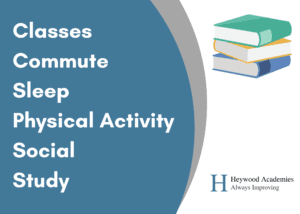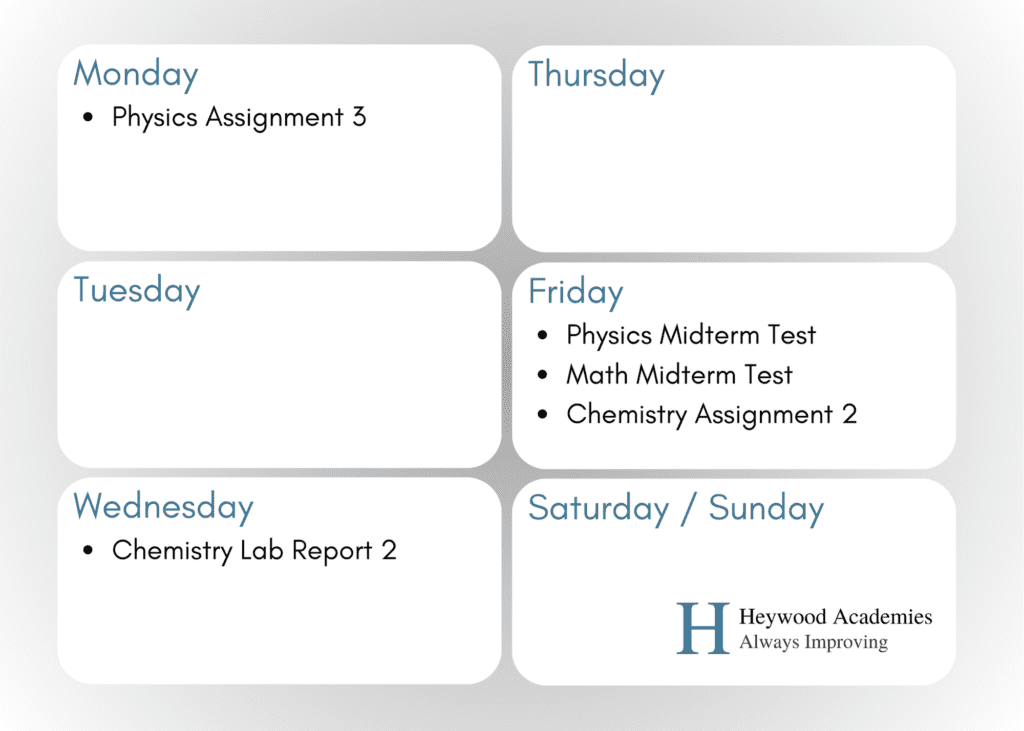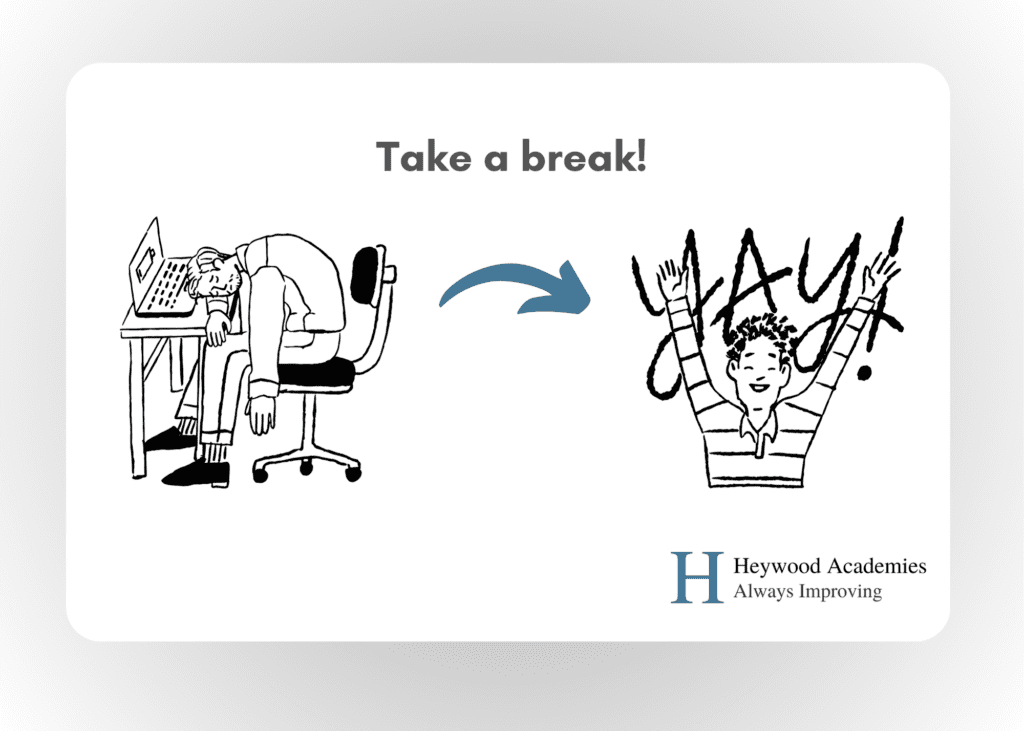As an engineering student, you have a lot on your plate.
Between attending lectures, studying for exams, completing assignments, and participating in extracurricular activities, it can be challenging to find time for everything.
However, with effective time management, you can balance your academic and personal commitments and achieve your goals.
In this blog post, we will discuss some time management tips that can help engineering students optimize their time and maximize their productivity.
1. Create a Schedule
The Importance of Time Blocking in Your Engineering Student Schedule
Time blocking is a powerful technique that can transform the way you manage your time as an engineering student.
By assigning specific blocks of time to dedicated tasks or activities, you can optimize focus and productivity.
For example, allocate set periods for studying, attending classes, and even taking breaks.
This structured approach ensures that each aspect of your academic and personal life receives the attention it deserves.
It also makes it very easy to see how much time you are spending on each activity.
How Do I Create My Engineering Student Schedule?
The first step to effective time management is to create a schedule.
This involves breaking down your day into manageable chunks and allocating time for different activities.
Start by creating a weekly schedule that includes your classes, commute time, and sleep.
Then, include time for completing assignments, studying for tests, extracurricular activities, and some kind of physical activity.
By creating a schedule, you can ensure that you have enough time to complete all your tasks and avoid last-minute cramming.
Learn the best way to schedule your time at school for a detailed breakdown of how I scheduled my time as an engineering student.

Incorporating Flexibility: Adapting Your Schedule to Unforeseen Changes
While having a well-structured schedule is crucial, it’s equally important to embrace flexibility.
Engineering students often encounter unexpected challenges or opportunities that require adjustments to their plans.
For example, you might get sick during your semester and need to reevaluate your schedule.
Learn how to incorporate flexibility into your schedule, allowing you to adapt to unforeseen challenges without compromising your goals.
2. Prioritize Your Tasks
Why is Task Prioritization Important for Engineering Students?
Once you have created a schedule, the next step is to prioritize your tasks.
Learning to allocate your time and energy to high-priority tasks will minimize your stress and maximize your efficiency.
How Do You Determine a Task’s Importance?
Not all tasks are created equally!
Some of your tasks, like final exams, are much more important than others, like individual assignments.
Take a close look at the grade weighting for each task.
Some assignments are worth less than 1% each, while some final exams can be worth 50% of your overall grade.
Make sure you are spending the right amount of time on each task.
The grade percentage weight will give you an idea of how much time to spend on each task.
By practicing this technique, you ensure that your efforts are focused on the tasks that contribute most significantly to your academic success.
Balancing Immediate Demands with Long-Term Projects
Balancing immediate demands, such as upcoming exams or assignments, with long-term project priorities is a common challenge for engineering students.
Practice allocating time to both short-term and long-term projects, preventing last-minute rushes and reducing stress.
A well-balanced schedule ensures that you stay on top of immediate responsibilities while making steady progress toward more extensive projects.
3. Use a To-Do List
Implementing a To-Do List for Efficient Time Management
A to-do list is a useful tool for managing your time effectively.
It can help you stay organized and ensure that you don’t forget any important tasks.
Create a to-do list at the beginning of the semester with all of your important dates and deadlines.
Update your to-do list each week and use it to track your progress.
Make sure to cross off tasks as you complete them, as this will give you a sense of accomplishment and motivation to keep going.
Digital vs Paper To-Do List: Which is Better?
There are many powerful digital tools for time management.
But to be honest, I found the best success with writing my to-do list in my paper agenda.
Creating a list of tasks in a paper agenda is the fastest and easiest way to stay on top of your deadlines.
Most schools will give out a paper agenda each semester with space to write in.
Write all of your due dates for assignments, lab reports, projects, and tests in the agenda.
This will help you visualize how much time you have left to complete each step.
Let’s look at an example of a paper agenda to-do list to see how this works.
Example To-Do List For an Engineering Student
Let’s assume that we have some assignments, lab reports, and midterm tests coming up this week.
Making a to-do list will help us prioritize our tasks and make sure that we don’t miss any deadlines.
Check your course outline, as well as any announcements from your teachers to find all of your important dates.
Let’s first look at a simple to-do list.
- Monday – Physics Assignment 3
- Wednesday – Chemistry Lab Report 2
- Friday – Physics Midterm Test
- Friday – Math Midterm Test
- Friday – Chemistry Assignment 2
This is a good start. We can see what tasks that we have to do as well as our deadlines.
But it has one major flaw: We can’t see how long we have to do each of our tasks.
Instead, let’s add our tasks to our agenda.

Now we can clearly see how much time we have to do each task.
We don’t have anything due on Tuesday or Thursday, so those are good days to get ahead.
Usually, the midterm tests are worth more than assignments and lab reports.
That means that we should try to finish our chemistry lab report and assignment early on in the week to make sure that we have lots of time to study for the math and physics tests.
By adding our tasks to our calendar instead of a list, it is much easier to prioritize.
4. Avoid Procrastination
Proactive Measures: How to Stop Procrastination Before It Starts
Procrastination is the enemy of time management.
It can lead to a backlog of tasks and cause unnecessary stress.
Preventing procrastination involves taking proactive measures to free yourself from distractions.
Distractions such as social media, email, or other non-essential activities can consume your time and attention.
Set your phone to airplane mode or leave it in your locker while you study.
Find an isolated study spot to avoid distractions from friends.
Take steps to avoid procrastination before it starts to keep yourself productive throughout the semester.
From setting realistic goals to cultivating a positive study environment, these measures empower engineering students to stay focused and maintain momentum in their academic pursuits.
Identifying Ways to Stay Motivated
It can seem daunting with all of the large assignments and projects that you have ahead of you.
It is easy to get demoralized or unmotivated.
To keep yourself motivated and focused, try breaking down larger tasks into smaller, more manageable ones.
Set achievable deadlines for each task and hold yourself accountable for meeting them.
Building a Procrastination-Resistant Study Environment
Your study environment plays a significant role in resisting procrastination.
Set yourself up for success by studying in a good environment.
Studying at school, rather than at home, is a great way to promote concentration.
This creates a separation of spaces.
It trains you to think of school as a place to study and home as a place to relax.
5. Take Breaks
How and When to Take Study Breaks Effectively
Taking breaks is an essential part of time management.
It may seem counterintuitive, but taking short breaks can actually increase productivity and improve focus.
Many people find it beneficial to use the Pomodoro Technique to schedule their breaks.
The Pomodoro technique works like this:
- Take a 5-minute break every 25 minutes
- After 2 hours, take a longer, 30-minute break
On these breaks, go for a walk, drink some water, or take a seat outside.
This will help you recharge your batteries and return to your tasks with renewed energy.
How to Use Breaks to Improve Test Performance
Midterm Tests and Final Exams are usually worth a large part of your grade.
So anything you can do to improve your test performance will help you achieve your academic goals.
Try taking a long break before your test to keep calm and focused.
A great way to do this is to take a 15-minute walk in nature before your test starts.
By incorporating a break into your pre-test routine, you prevent mental fatigue and recharge your focus.

Balancing Work and Rest: Strategic Breaks for Engineering Students
Balancing work and rest is essential for long-term academic success.
Incorporate longer breaks into your weekly schedule, to ensure a healthy balance between intense study sessions and rejuvenating periods of rest.
Learn to listen to your body’s signals and adjust your breaks accordingly for sustained productivity.
6. Get Enough Quality Sleep
The Connection Between Quality Sleep and Academic Performance
Quality sleep is a cornerstone of academic success for engineering students.
Lack of sleep can affect your concentration, memory, and mood, making it difficult to complete tasks efficiently.
An article from the Sleep Foundation states that “Not sleeping or getting enough sleep can lower your learning abilities by as much as 40%.”
This will help you stay alert and focused throughout the day.
Establishing a Sleep Routine: A Crucial Component for Engineering Success
Creating a consistent sleep routine is vital for engineering students looking to optimize their cognitive function.
Make sure you are getting enough hours of sleep by scheduling sleep into your calendar.
Try to get at least 7-9 hours of sleep per night and establish a consistent sleep schedule.
An effective sleep routine also has consistent bedtimes and wake-up times.
This will make it easier to fall asleep and wake up at your scheduled times.
Implementing a Pre-Sleep Ritual: Tips for Engineering Students to Improve Rest
Engineering students often have limited time available to sleep, so it’s best that you make use of the time that you have!
Implementing a pre-sleep ritual will help you fall asleep faster, stay asleep throughout the night, and improve your quality of sleep.
Limit your water intake before bed to reduce the number of times you wake up throughout the night.
Restrict your screen usage before bed to help you fall asleep faster.
Avoid drinking caffeine within 10 hours of sleeping.
Optimizing your sleep environment can also improve your quality of sleep.
Make sure that your room is quiet, dark, and at a comfortable temperature throughout the night.
Conclusion
In conclusion, time management is an essential skill for university students.
By creating a schedule, prioritizing tasks, using a to-do list, avoiding procrastination, taking breaks, and getting enough sleep, you can optimize your time and maximize your productivity.
Remember that effective time management requires discipline and commitment, but the rewards are worth it.
With these tips, you can stay on top of your academic and personal commitments and achieve your goals.

Matt Heywood
Matt Heywood is the founder of Heywood Academies, a tutoring company for STEM students, and a Physics Instructional Assistant at Camosun College.
His simple and effective approach to learning has helped over 140 students in Science, Math, and Engineering.
You can find Matt on Instagram, Facebook, Linked In, and YouTube.
